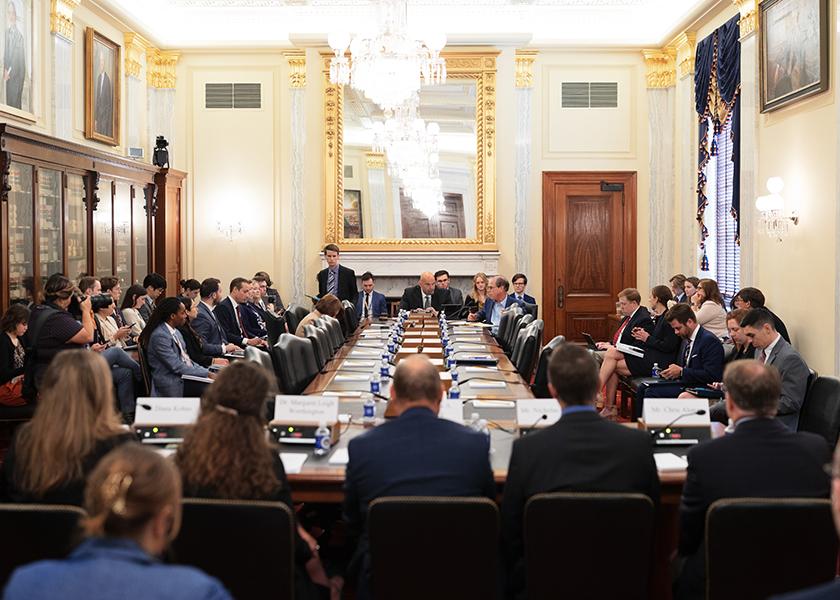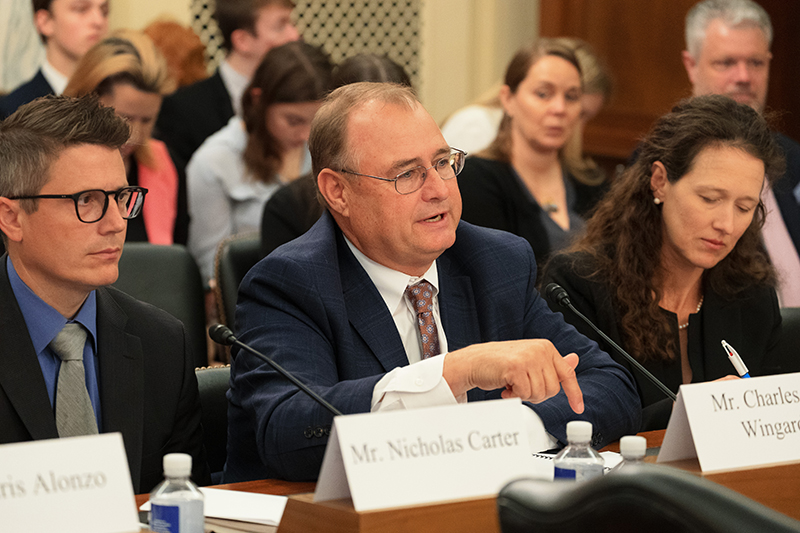Produce advocates press Congress about next farm bill

The clock is ticking on the next farm bill. With the 2018 farm law expiring on Sept. 30, 2023, Congress is drafting a new farm bill that will determine the next five years of agricultural policy in the U.S.
As the deadline looms, specialty crop growers are continuing to advocate for their needs in the omnibus bill.
In a hearing last week titled, “How the Farm Bill Works for Specialty Crop Producers,” growers representing the International Fresh Produce Association and Specialty Crop Farm Bill Alliance relayed key farm bill priorities to the Senate Committee on Agriculture, Nutrition and Forestry subcommittee on Food and Nutrition, Specialty Crops, Organics and Research.
Related news: Farm Bill Will Not See an Increase in Funds
“The farm bill is the single greatest investment in the produce and floral industries and is up for reauthorization every five years,” IFPA Vice President of U.S. Government Relations Rebeckah Adcock said in a news release. “Fresh produce comes together with our like-minded allies to advocate for policies that keep specialty crops competitive and provide the most nutritious, safe and delicious products to American families.
Association members that have firsthand experience with policies that work and those that do not are the most effective advocates to congressional members as they head into farm bill negotiations, Adcock said.
Key policies in the 2023 farm bill, according to produce advocates
Topping the list of priorities affecting the produce industry, according to the June 7 testimony, are research, crop insurance, conservation and the climate, nutrition, the Specialty Crop Block Grants initiative, organics and trade.
Added to this, Diana Kobus, executive director of Pennsylvania Certified Organic and an Organic Trade Association member, underlined that “the organic specialty crop community has an outsized regulatory burden for doing right by us all.”
In her testimony, Kobus urged congressional leaders to add additional sources of permanent funding for specialty crop and organic research, to incentivize new organic producers by streamlining and simplifying the certification cost-share programs, and to improve crop insurance programs.
“While there were improvements made to programs that support crop insurance for organic producers in the 2018 farm bill, such as fully funding the Organic Data Collection program, there is still room for improvement as crop insurance continues to not fit the work of a lot of organic producers, especially specialty crop growers,” Kobus said in her testimony.
Chris Alonzo, a third-generation mushroom grower and owner of Pietro Industries, pressed for inclusion of fresh mushrooms in the upcoming farm bill, stressing that research is key to the sector’s long-term success.
“Too perishable to import or export overseas, fresh mushrooms are a national commodity and should be treasured,” Alonzo said in his testimony. “Mushroom farmers are truly feeding America, and your support of research through the farm bill will strengthen this agricultural legacy for many years to come.

Charles Wingard, vice president of field operations at Walter P. Rawl & Co., provided testimony on behalf of IFPA, the produce industry and the Specialty Crop Farm Bill Alliance. Wingard shared his perspective on several topics where federal policies and programs significantly affect specialty crops.
“The current implementation of AGI (adjusted gross income) limitations disproportionately prohibits specialty crop producers from participating in certain USDA programs in a meaningful way and potentially inhibits specialty crop producers from participating in disaster programs,” Wingard said in his testimony.
This topic has surfaced for the industry most recently in the aftermath of the atmospheric river events in California earlier this year.
“USDA programs that require a means test for participation should be based on income derived from farming and be flexible enough to account for the variety of structures, accounting methods and other special considerations for specialty crop producers, not just their AGI,” Wingard continued.
Related news: Why you need to understand adjusted gross income
Additionally, Wingard advocated for inclusion of the Specialty Crop Research Initiative.
“Specialty Crop Research Initiative addresses the critical needs of our industry by awarding grants that support research and extension that address key challenges of national, regional, and multi-state importance in sustaining all components of food and agriculture, including conventional, contained environment and organic production systems,” he said in his testimony.
Wingard also highlighted ways in which the farm bill intersects with the realities of production. Specifically, he called out the recent Environmental Protection Agency announcement to revoke registration of the herbicide DCPA without any available alternatives to growers like himself.
“To effectively serve the specialty crop industry and American consumers, we need mechanisms in place that can fast track research and approval of crop protection tools,” he said. “Both USDA’s Office of Pesticide Management Policy and the IR4 Project are key voices for specialty crop producers working with EPA on these issues and I implore you to elevate their mission and ensure their stable and robust funding.”







